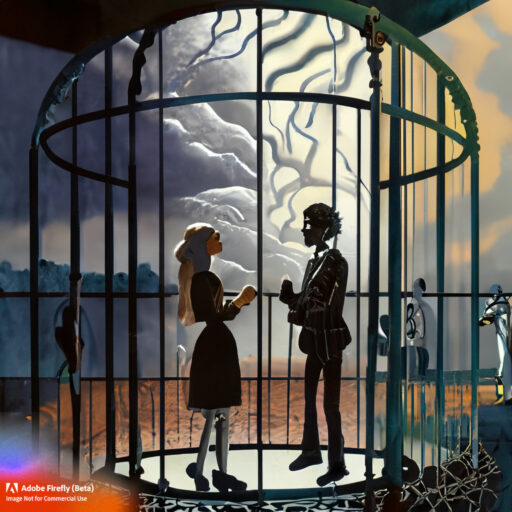Category: introduction
-

Predicting the past
Retro-predictions were one of those ideas that appear seemingly out of nowhere and are so obvious, that it is surprising nobody thought about them before. Traditional – or rather forward – predictions guess what might happen. The algorithm trains with billions of historized events, finding the common patterns between them and how events typically follow […]
-

Historized and Historized-nots
Less than two years after its introduction, History profoundly changed the lives of billions worldwide. East and West found another reason for disagreement, as each fought for their respective versions of History. In Europe and North America, and less so in other historized parts of the world, commercial exploitation of replays left no business unchanged. […]
-

Machine Prediction
Police departments were in a difficult situation. Forced to monitor the streets using History, they suddenly witnessed every single time someone broke the law in public. They could not ignore what they saw because everyone else had the same access to History and could see it too. But the bureaucracy that came with dealing with […]
-

Delayed law enforcement
While many enjoyed broadcasting every second of their lives, others dreaded being unknowingly historized. And rightly so: cases of pedophiles, stalkers, and thieves using History became increasingly common. The media was obsessed, and not only out of a sense of duty to report on relevant happenings: they feared being displaced by it and becoming obsolete. […]
-

Live your History, live
While this East-West schism shook geopolitics and the History Company pursued their quest to historize the world, the Human Data Corporation was trying to figure out its own future. They didn’t want to completely depend on their former colleagues, but still believed that History would revolutionize the world, becoming the main storage of human information […]
-

The language of the creators
Within a week, the victors had rebranded themselves as The History Company and introduced their new algorithm, “the only viable option” for the preservation of History. They assured governments that there was nothing to worry about, managed to bring some new investors on board, and pushed the new code into production. Unfortunately, the speed of […]
-

Lost in dogmatic deafness
Letting History lag was out of the question, which meant that the Corporation had to shelve their expansion plans for a while. The financial markets reacted in the way that they usually do: downgrading the Corporation’s debt, sinking its market valuation, and dragging down with them a bunch of other companies. Investors were not happy, […]
-

Lagging behind reality
The expansion of History didn’t happen without glitches. During its first years, the Human Data Corporation found itself unable to fulfill its promises of worldwide reach. It turned out that their software developers had been too optimistic, underestimating the processing power needed to build History. Immense data centers, designed to process the information from entire […]
-

The right to be forgotten
History would not be worth much, if it didn’t register everything, everywhere. That included, of course, people. While being seen and heard all the time was for some a dream come true, for others, it was hell. The Human Data Corporation added some privacy protection to History, but it only restricted its replaying, that is, […]
-

The beginning of History
Peak storage is unavoidable, but humanity doesn’t seem interested in curing its addiction to growth. What can be done about it? In the year 2035, a group of scientists and engineers, concerned about the economic and political consequences of peak storage, founded the Human Data Corporation. Maybe it’s not possible to avert peak storage, they […]